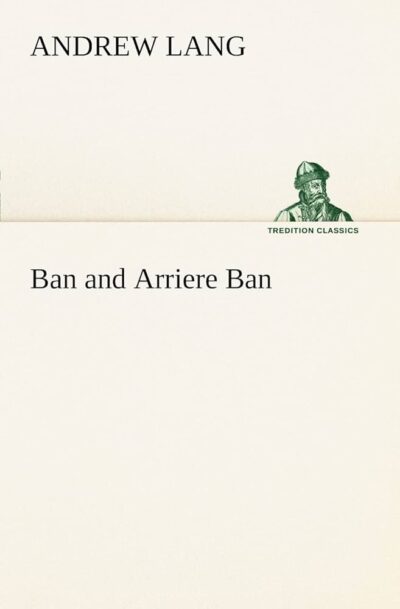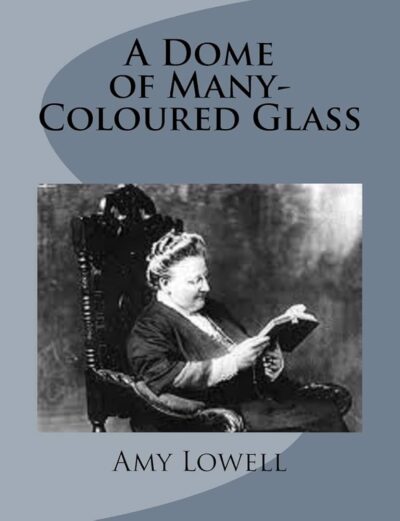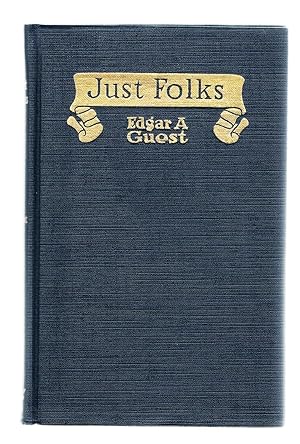208 Results in the "Poetry" category
Biography & Memoir (513)
Books Like (9)
Business & Finance (3)
Children’s Fiction (235)
Dystopian (30)
Education & Learning (26)
Fantasy (1832)
fashion (1)
Fiction (5781)
Health & Wellness (21)
Historical Fiction (662)
Horror (162)
Literary Fiction (1011)
Non-Fiction (1213)
Novel (240)
Others (106)
Philosophy (147)
Politics & History (126)
Posts (121)
Psychology (50)
Religion & Spirituality (1)
Romance Novel (771)
Science & Technology (65)
Science Fiction (409)
Self-Help & Personal Development (112)
The Ultimate Book Lists (1)
Thriller / Mystery (912)
Travel & Adventure (2)
True Crime (57)
view (96)
Young Adult (751)
-
Story
Men, Women, and Ghosts
 Men, Women, and Ghosts by Elizabeth Stuart Phelps is a collection of short stories blending realism with supernatural elements, exploring the lives, emotions, and inner struggles of its characters. Published in 1869, the book delves into themes of love, loss, war, and the human psyche, often with a focus on the impact of the Civil War on individuals and families. Phelps' stories are known for their psychological depth and moral complexity, as well as their daring exploration of women's roles and inner lives. With a mix of ghostly encounters and poignant human experiences, *Men, Women, and Ghosts* is celebrated for its sensitive, sometimes haunting portrayal of the spiritual and emotional dimensions of everyday life.
Men, Women, and Ghosts by Elizabeth Stuart Phelps is a collection of short stories blending realism with supernatural elements, exploring the lives, emotions, and inner struggles of its characters. Published in 1869, the book delves into themes of love, loss, war, and the human psyche, often with a focus on the impact of the Civil War on individuals and families. Phelps' stories are known for their psychological depth and moral complexity, as well as their daring exploration of women's roles and inner lives. With a mix of ghostly encounters and poignant human experiences, *Men, Women, and Ghosts* is celebrated for its sensitive, sometimes haunting portrayal of the spiritual and emotional dimensions of everyday life.-
4.9 K • Nov 8, '24
-
4.6 K • Nov 8, '24
-
5.6 K • Nov 8, '24
-
-
Story
The Tale of Balen
 The Tale of Balen by Algernon Charles Swinburne is a poetic retelling of the tragic Arthurian legend of Sir Balin, a knight whose life is marked by loyalty, courage, and a fateful destiny. First published in 1896, the poem follows Sir Balin’s quest for honor and his encounters with themes of fate, vengeance, and the consequences of his actions. Swinburne's vivid, lyrical verse captures the medieval atmosphere of King Arthur's court while delving into the hero’s inner conflict and moral struggles. This work highlights Swinburne’s fascination with chivalric ideals and the tragic beauty of knightly legends, bringing to life one of the darker tales from Arthurian mythology.
The Tale of Balen by Algernon Charles Swinburne is a poetic retelling of the tragic Arthurian legend of Sir Balin, a knight whose life is marked by loyalty, courage, and a fateful destiny. First published in 1896, the poem follows Sir Balin’s quest for honor and his encounters with themes of fate, vengeance, and the consequences of his actions. Swinburne's vivid, lyrical verse captures the medieval atmosphere of King Arthur's court while delving into the hero’s inner conflict and moral struggles. This work highlights Swinburne’s fascination with chivalric ideals and the tragic beauty of knightly legends, bringing to life one of the darker tales from Arthurian mythology.-
4.5 K • Nov 8, '24
-
4.6 K • Nov 8, '24
-
4.5 K • Nov 8, '24
-
-
 Legends and Lyrics: Second Series is a collection of poems by Adelaide Anne Procter, published in 1861. It features reflective and lyrical works exploring themes of faith, love, compassion, and social justice, showcasing Procter's delicate and heartfelt poetic style.
Legends and Lyrics: Second Series is a collection of poems by Adelaide Anne Procter, published in 1861. It features reflective and lyrical works exploring themes of faith, love, compassion, and social justice, showcasing Procter's delicate and heartfelt poetic style.-
4.0 K • Nov 8, '24
-
4.1 K • Nov 8, '24
-
4.4 K • Nov 8, '24
-
-
Story
Ban and Arriere Ban
 Ban and Arrière-Ban by George Meredith is a historical novel set in the medieval period, blending romance, adventure, and intrigue as it follows the lives of knights and noble families. The story explores themes of loyalty, honor, and personal conflict, focusing on the complex relationships between its characters as they navigate societal expectations and the challenges of chivalric duty. The novel's title refers to the medieval French legal terms for summoning all able-bodied men to arms, reflecting the novel's focus on military and familial obligations.
Ban and Arrière-Ban by George Meredith is a historical novel set in the medieval period, blending romance, adventure, and intrigue as it follows the lives of knights and noble families. The story explores themes of loyalty, honor, and personal conflict, focusing on the complex relationships between its characters as they navigate societal expectations and the challenges of chivalric duty. The novel's title refers to the medieval French legal terms for summoning all able-bodied men to arms, reflecting the novel's focus on military and familial obligations.-
4.1 K • Nov 8, '24
-
4.9 K • Nov 8, '24
-
4.0 K • Nov 8, '24
-
-
Story
More Bab Ballads
 More Bab Ballads by W.S. Gilbert is a collection of humorous and satirical poems that feature witty rhymes, whimsical characters, and clever wordplay, often poking fun at social conventions, love, and human folly, in the distinctive style for which Gilbert is known.
More Bab Ballads by W.S. Gilbert is a collection of humorous and satirical poems that feature witty rhymes, whimsical characters, and clever wordplay, often poking fun at social conventions, love, and human folly, in the distinctive style for which Gilbert is known.-
4.4 K • Nov 8, '24
-
4.1 K • Nov 8, '24
-
4.8 K • Nov 8, '24
-
-
Story
The Three Taverns
 The Three Taverns by Edwin Arlington Robinson is a poignant collection of poems that delves into themes of human longing, spiritual reflection, and the complexities of life. Published in 1920, the work showcases Robinson's masterful use of language and form to explore profound questions about existence, faith, and the human condition. With a blend of dramatic monologues and lyrical verse, the collection reflects Robinson's distinctive voice and his ability to capture the subtleties of emotion and thought, making it a timeless contribution to American poetry.
The Three Taverns by Edwin Arlington Robinson is a poignant collection of poems that delves into themes of human longing, spiritual reflection, and the complexities of life. Published in 1920, the work showcases Robinson's masterful use of language and form to explore profound questions about existence, faith, and the human condition. With a blend of dramatic monologues and lyrical verse, the collection reflects Robinson's distinctive voice and his ability to capture the subtleties of emotion and thought, making it a timeless contribution to American poetry.-
4.7 K • Nov 8, '24
-
4.0 K • Nov 8, '24
-
4.9 K • Nov 8, '24
-
-
 A Dome of Many-Coloured Glass by Amy Lowell is a lyrical and evocative collection of poetry that captures the beauty and complexity of life through vivid imagery and emotional depth. Published in 1912, the collection is divided into three sections— Sonnets, Songs of Love and Death, and A Dome of Many-Coloured Glass—each exploring themes of nature, love, loss, and the interplay between human emotion and the world. With its intricate craftsmanship and vibrant language, the collection establishes Lowell as a significant voice in early 20th-century poetry, blending tradition with innovation.
A Dome of Many-Coloured Glass by Amy Lowell is a lyrical and evocative collection of poetry that captures the beauty and complexity of life through vivid imagery and emotional depth. Published in 1912, the collection is divided into three sections— Sonnets, Songs of Love and Death, and A Dome of Many-Coloured Glass—each exploring themes of nature, love, loss, and the interplay between human emotion and the world. With its intricate craftsmanship and vibrant language, the collection establishes Lowell as a significant voice in early 20th-century poetry, blending tradition with innovation.-
3.8 K • Nov 8, '24
-
3.8 K • Nov 8, '24
-
4.7 K • Nov 8, '24
-
-
Story
The Bab Ballads
 The Bab Ballads by W. S. Gilbert is a delightful collection of humorous and satirical poems accompanied by the author’s own whimsical illustrations. Originally published in the late 19th century, the poems are known for their clever wordplay, absurd scenarios, and sharp wit, showcasing Gilbert’s talent for blending humor with social commentary. Many of these pieces served as inspiration for the celebrated operas he later created with composer Arthur Sullivan. Filled with quirky characters and entertaining narratives, The Bab Ballads remains a timeless classic of light verse and Victorian humor.
The Bab Ballads by W. S. Gilbert is a delightful collection of humorous and satirical poems accompanied by the author’s own whimsical illustrations. Originally published in the late 19th century, the poems are known for their clever wordplay, absurd scenarios, and sharp wit, showcasing Gilbert’s talent for blending humor with social commentary. Many of these pieces served as inspiration for the celebrated operas he later created with composer Arthur Sullivan. Filled with quirky characters and entertaining narratives, The Bab Ballads remains a timeless classic of light verse and Victorian humor.-
4.8 K • Nov 8, '24
-
4.0 K • Nov 8, '24
-
4.4 K • Nov 8, '24
-
-
 Legends and Lyrics - First Series by Adelaide Anne Procter is a collection of lyrical poems that touch on themes of love, faith, and the human experience, written with emotional depth and spiritual insight. Published in the 19th century, the poems are known for their simplicity and beauty, resonating with readers through their tender reflections on life’s trials and virtues.
Legends and Lyrics - First Series by Adelaide Anne Procter is a collection of lyrical poems that touch on themes of love, faith, and the human experience, written with emotional depth and spiritual insight. Published in the 19th century, the poems are known for their simplicity and beauty, resonating with readers through their tender reflections on life’s trials and virtues.-
3.6 K • Nov 8, '24
-
3.7 K • Nov 8, '24
-
4.4 K • Nov 8, '24
-
-
Story
Just Folks
 Just Folks by Edgar A. Guest is a heartwarming collection of poems that celebrate the everyday lives, struggles, and joys of ordinary people, capturing the essence of kindness, simplicity, and the beauty of human connections.
Just Folks by Edgar A. Guest is a heartwarming collection of poems that celebrate the everyday lives, struggles, and joys of ordinary people, capturing the essence of kindness, simplicity, and the beauty of human connections.-
3.9 K • Nov 8, '24
-
5.0 K • Nov 8, '24
-
4.7 K • Nov 8, '24
-
- 1 2 Next
